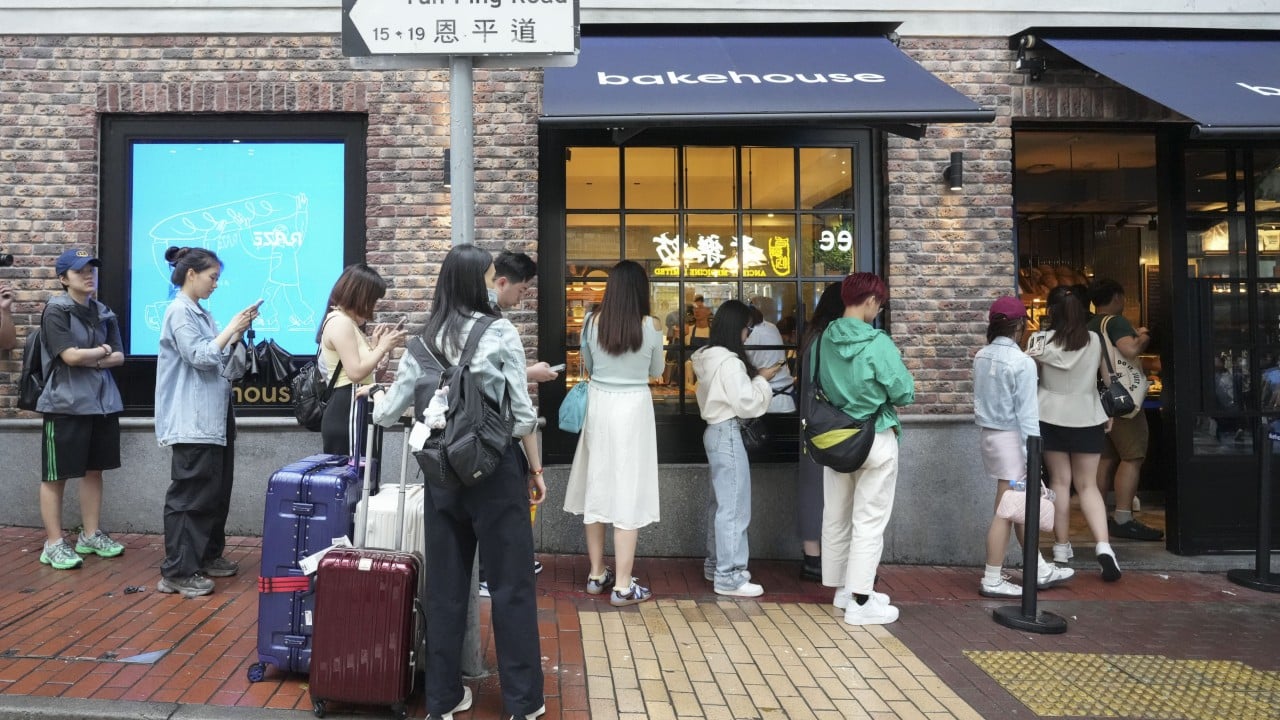On a typical weekday in Hong Kong, as a typhoon loomed, customers braved the rain outside a Bakehouse branch in Causeway Bay, waiting to enter the social-media viral bakery, known for its sourdough egg tarts, artisanal breads and fresh pastries.
Advertisement
It was a stark contrast to just weeks earlier in June, when Hong Kong’s four-decade-old, home-grown Taipan Bread & Cakes, inventor of “snow skin” mooncakes, closed its final branches. The closure came with an estimated debt of HK$16 million (US$2 million) in unpaid wages and severance.
Brands like Bakehouse, mainland Chinese drinks chain Chagee and Korean eateries were identified as thriving in Hong Kong’s slumping restaurant and retail market, taking over previously empty commercial spaces, according to property insiders.
The reason for their current success, they said, was that they could offer what others had failed to grasp – novel experiences, unique and ever-new products, quality and finding the right balance between profit and expenditure amid a weak economy and growing numbers of online consumers.
Lawmaker Michael Tien Puk-sun, also a businessman and founder of clothing brand G2000, highlighted the challenges faced by traditional retail outlets, particularly those competing on price with mainland e-commerce platforms such as Taobao.
Advertisement
“Retail models have changed drastically from the traditional sense,” he said.

